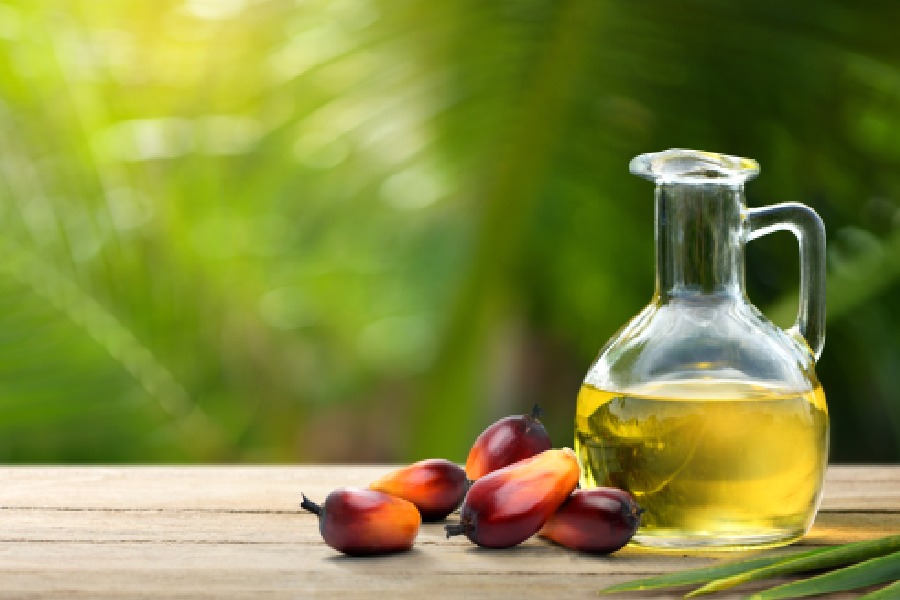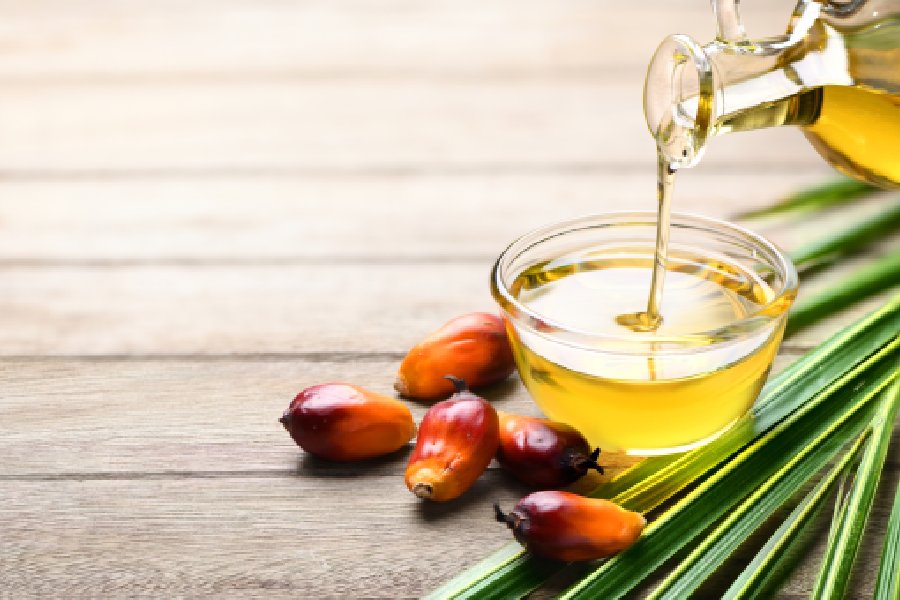Palm oil is everywhere — from your breakfast bread to your favorite munchies.
But this kitchen staple has sparked a global health discourse, with several glaring revelations connecting its use to cardiac ailments and other health hazards.
To uncover the truth, My Kolkata asked three health experts how palm oil affects our bodies, if moderate consumption is safe, and what healthy alternatives can one adopt.
High in vitamin E and beta-carotene
Palm oil is derived from the fruit of the oil palm tree and is rich in saturated fats and certain antioxidants. According to Dr Ananya Bhowmik, dietician and founder of Code Wellness, palm oil can offer some nutritional benefits when used in moderation.
“Palm oil contains vitamin E (tocotrienols), which helps protect cells from oxidative stress, and beta-carotene, which the body can convert into vitamin A,” said Bhowmik.
It is also stable at high temperatures, making it suitable for deep frying and industrial food processing. Its heat stability is due to its saturated fat content, which resists breakdown during high-temperature cooking.
“Some studies have even suggested that tocotrienols in palm oil may have neuroprotective effects that support brain health, though more research is needed to draw strong conclusions,” Bhowmik added.
The health risks: From cardiac diseases to obesity

Shutterstock
Despite the advantages, health experts caution against regular consumption of palm oil. The primary concern? High saturated fat content.
“Palm oil is high in saturated fat, which can raise LDL cholesterol, a known risk factor for heart disease,” said Deepa Mishra, consultant in nutrition & dietetics at Narayana RN Tagore Hospital.
Mishra warned that excessive intake of palm oil may also contribute to obesity, fatty liver, insulin resistance, and chronic inflammation.
This risk is amplified in the case of refined palm oil, which is commonly used in processed foods.
Bhowmik pointed out that bleached and deodorized palm oil loses many of its natural nutrients during refinement and is often found in ultra-processed products, which are linked to diabetes, inflammation, and obesity.
Ipsita Chakravarti, HOD of Dietetics at CMRI Kolkata, said palm oil is primarily composed of palmitic acid, a saturated fat that increases LDL cholesterol and contributes to plaque buildup in arteries. “It contains good vitamins like A and E, but the 44% saturated fat content generally outweighs these benefits.”
While some studies suggest palm oil may slow blood clotting and offer vascular protection, there isn’t enough evidence to back this hypothesis.
“As a clinical dietitian, I do not prescribe palm oil. It should be avoided,” Chakravarti advised.
Who should be extra cautious?
Some individuals should be particularly mindful of palm oil intake:
- Those with high cholesterol or a history of heart disease
- People following a low-saturated-fat diet
- Anyone trying to reduce processed food consumption
Healthier alternatives to consider

Shutterstock
If palm oil is off the table — or at least to be used in moderation — what are some of the alternatives?
- Olive oil: Rich in monounsaturated fats and antioxidants, it is ideal for low-to-medium heat cooking
- Canola oil: High in heart-friendly fats and versatile for various types of cooking
- Sunflower oil: Light, vitamin E-rich, and suitable for frying
- Soybean oil: Contains omega-3s, which support cardiovascular health
- Coconut oil (in moderation): Offers heat stability, though it also contains saturated fats
“These alternatives have lower saturated fat and higher monounsaturated content, which helps reduce LDL and provide antioxidant support,” says Mishra.
Final takeaway
Palm oil is not inherently harmful, but it’s not healthy either. Used occasionally and in small amounts, it may be tolerable for most people. However, the risks of frequent or excessive use, especially through processed food intake, far outweigh the minor benefits.
If you’re watching your cholesterol, heart health, or overall dietary fat intake, switching to oils like olive, sunflower, or canola may be the smarter — and safer — choice.
